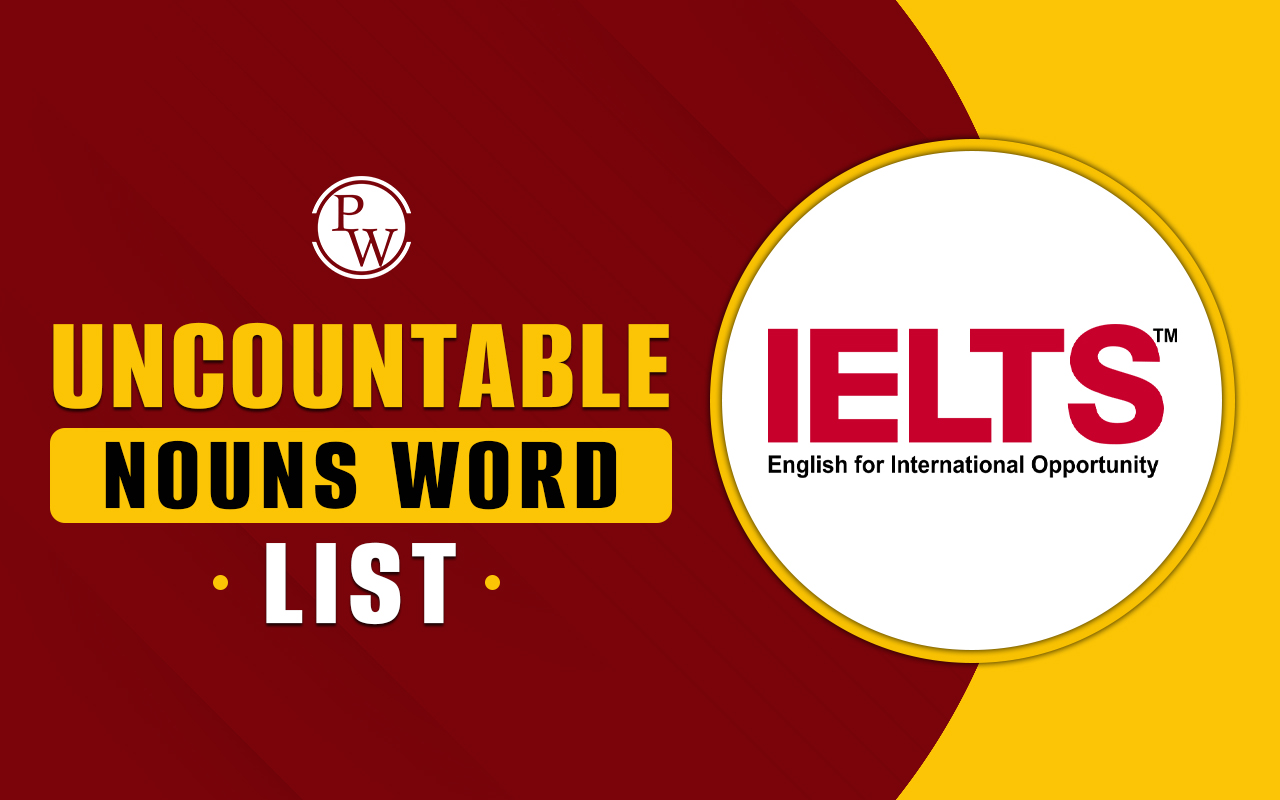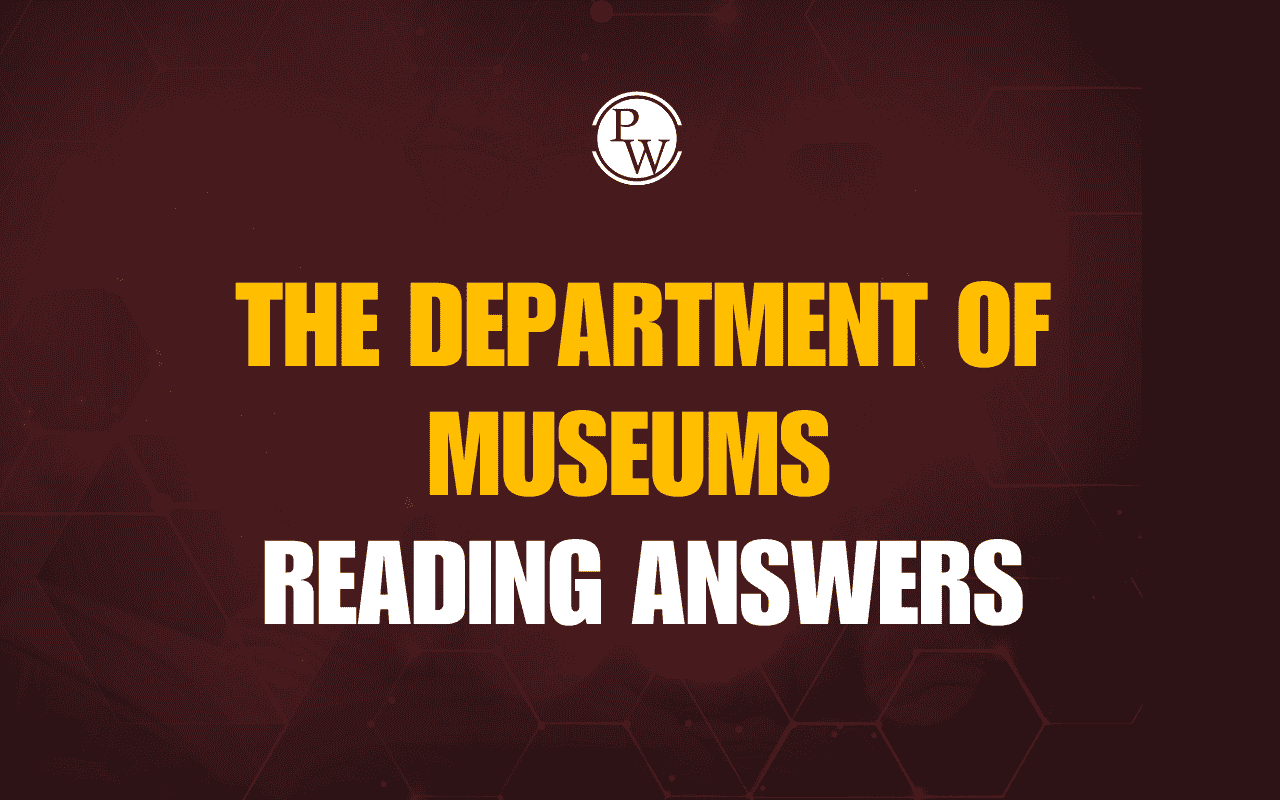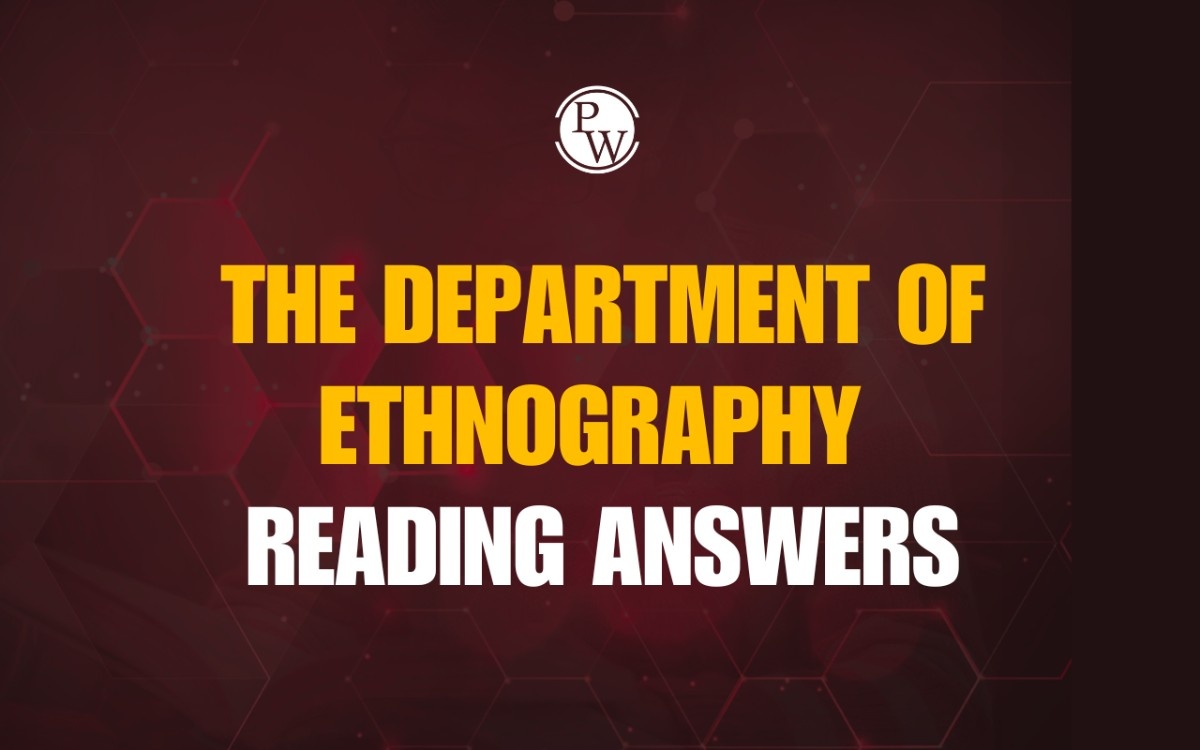
Uncountable Nouns Word List for IELTS: Uncountable Nouns Word List: Uncountable nouns, also known as mass nouns, refer to things that cannot be counted individually. These nouns usually represent abstract ideas, substances, or collective categories. They do not take a plural form and are not used with the article "a" or "an." Instead, they are often used with quantifiers like "some," "much," "a little," or "a piece of."
Understanding uncountable nouns is important for proper grammar, especially in IELTS writing and speaking tasks, where accurate language use is assessed.
Also Read:
Uncountable Nouns Word List
Uncountable nouns refer to things that we consider as wholes or masses, not as individual units. They cannot be separated or counted using numbers directly.
Examples of uncountable nouns:
-
Water
-
Information
-
Sugar
-
Advice
-
Knowledge
You cannot say “two waters” or “an information.” Instead, you would say “two bottles of water” or “a piece of information.”
Features of Uncountable Nouns
Before looking at the list, here are some common features of uncountable nouns:
-
No plural form: They do not change into plural.
-
Used with singular verbs: For example, "The furniture is new."
-
Used with quantity expressions: Such as "some," "much," "a little," "a lot of."
Types of Uncountable Nouns
Uncountable nouns, also referred to as mass nouns, include various categories. The following are some key types:
- Substances and Materials: These nouns refer to materials or substances that cannot be counted individually. Examples include water, air, sugar, butter, and sand.
- Abstract Concepts: These represent intangible ideas or qualities that cannot be measured or counted. Examples include information, advice, knowledge, love, and happiness.
- Collective Categories: These nouns describe groups or collections of items viewed as a whole. Examples include furniture, luggage, equipment, news, and homework.
- Food and Drink: Certain food items and beverages are considered uncountable because they are often regarded as a whole rather than individual units. Examples include bread, rice, cheese, coffee, and milk.
- Natural Phenomena: These nouns describe natural occurrences or elements. Examples include weather, lightning, rain, and snow.
- Languages and Subjects: Academic subjects and languages are also treated as uncountable. Examples include mathematics, economics, French, and Spanish.
| IELTS Pie Chart Task 1 | Cohesive Devices in IELTS Writing |
Common Uncountable Nouns Word List
Here is a categorised list of common uncountable nouns to help improve your vocabulary and grammar.
1. Substances and Materials
These nouns refer to physical materials that cannot be counted.
-
Water
-
Air
-
Sand
-
Rice
-
Sugar
-
Salt
-
Flour
-
Oil
-
Milk
-
Coffee
-
Bread
-
Gold
-
Silver
-
Cotton
-
Wood
-
Ice
2. Abstract Ideas
These are concepts or ideas that cannot be touched or counted.
-
Information
-
Advice
-
Knowledge
-
Education
-
Research
-
Intelligence
-
Wisdom
-
Courage
-
Honesty
-
Luck
-
Progress
-
Justice
-
Time
-
Truth
-
Peace
IELTS Writing Scoring, Marking Scheme and Score
3. Weather and Natural Elements
These nouns describe weather conditions or natural phenomena.
-
Rain
-
Snow
-
Hail
-
Thunder
-
Lightning
-
Wind
-
Fog
-
Sunshine
-
Heat
-
Cold
4. Food and Drinks
Some foods and drinks are considered uncountable when referred to generally.
-
Cheese
-
Butter
-
Meat
-
Fish
-
Bacon
-
Fruit
-
Pasta
-
Spaghetti
-
Flour
-
Juice
-
Beer
-
Wine
Note: Some of these can be countable in certain contexts. For example, “two wines” may refer to two types of wine.
5. Academic and Work-Related Terms
These nouns often appear in academic or professional settings.
-
Homework
-
Work
-
Equipment
-
Luggage
-
Baggage
-
Furniture
-
Machinery
-
Software
-
Traffic
-
Paperwork
-
Training
-
Employment
IELTS Writing Tips, Strategy, and Practice
Common Mistakes with Uncountable Nouns
Learners often make errors when trying to use uncountable nouns as if they were countable. Here are some mistakes and their corrections:
|
Incorrect Usage |
Correct Usage |
|---|---|
|
An advice |
A piece of advice |
|
Many furniture |
Much furniture |
|
Two informations |
Two pieces of information |
|
A knowledge |
Some knowledge / A bit of knowledge |
|
A luggage |
A piece of luggage |
How to Quantify Uncountable Nouns
To express amounts, we often use specific expressions with uncountable nouns:
-
A glass of water
-
A piece of bread
-
A slice of cheese
-
A bottle of milk
-
A bit of advice
-
A piece of news
-
A grain of rice
100 IELTS Essay Questions, Types, Preparation Tips
Useful Quantifiers for Uncountable Nouns
Here are some useful quantifiers that commonly go with uncountable nouns:
-
Some
-
A lot of
-
Much
-
A little
-
Enough
-
A great deal of
-
Plenty of
-
A bit of
-
A piece of
Also Read:
- IELTS Writing Task 1
- IELTS Writing Task 2
- IELTS Writing Task 2 Sample Answer, Tips and Mistakes to Avoid
Uncountable Nouns Sample Question 1
Q: Choose the correct option to complete the sentence.
There isn’t _______ milk left in the fridge.
a) many
b) much
c) a few
d) several
Answer:
b) much
Explanation: "Milk" is an uncountable noun, so we use "much" instead of "many" or "a few," which are used with countable nouns.
Uncountable Nouns Sample Question 2
Q: Rewrite the sentence using correct grammar.
She packed all her luggages before leaving the hotel.
Answer:
She packed all her luggage before leaving the hotel.
Explanation: "Luggage" is an uncountable noun and does not have a plural form. "Luggages" is incorrect.
Uncountable Nouns Sample Question 3
Q: Which of the following sentences is correct?
a) I have an important information to share.
b) He gave me two useful advices.
c) We need some furniture for the office.
d) There are many traffics in the city today.
Answer:
c) We need some furniture for the office.
Explanation: "Furniture" is correctly used as an uncountable noun with "some." The other options incorrectly treat uncountable nouns as countable.
Guidance of PW IELTS
Physics Wallah offers multiple online IELTS courses for all students. Follow the IELTS pages to better prepare for the exam.
| What is IELTS Exam? | Documents Required for IELTS Registration |
| IELTS exam eligibility requirements | IELTS Exam Fees |
| IELTS test results | IELTS Exam Pattern |
Uncountable Nouns Word List FAQs
How can I improve my understanding of uncountable nouns?
What is the difference between countable and uncountable nouns?
Is 'money' an uncountable noun, and how do we express quantity?
Can we use plural verbs with uncountable nouns?
What are uncountable nouns in English grammar?
Can uncountable nouns ever become countable?











